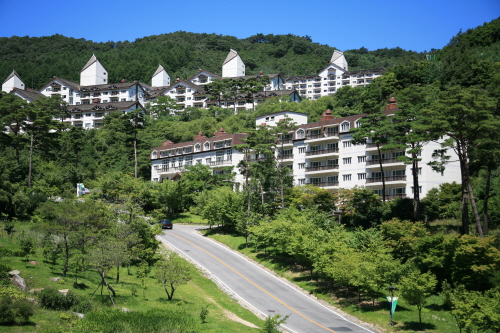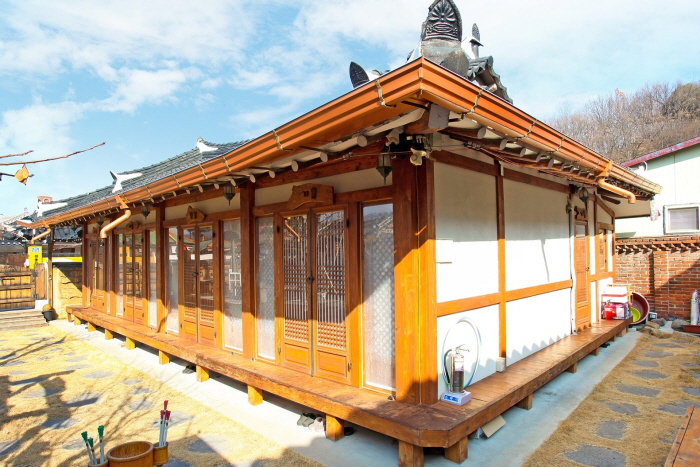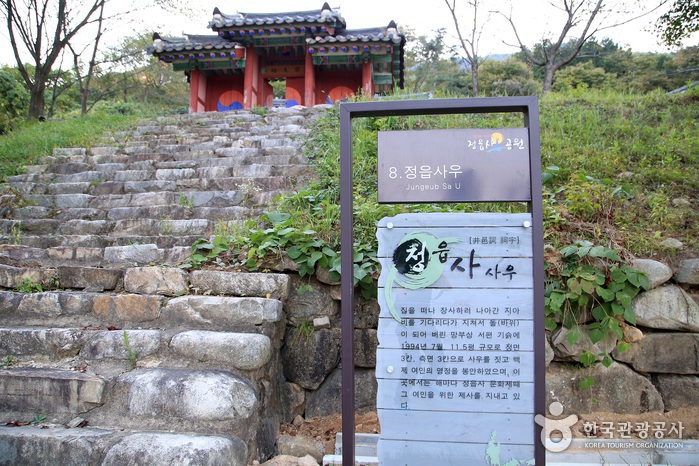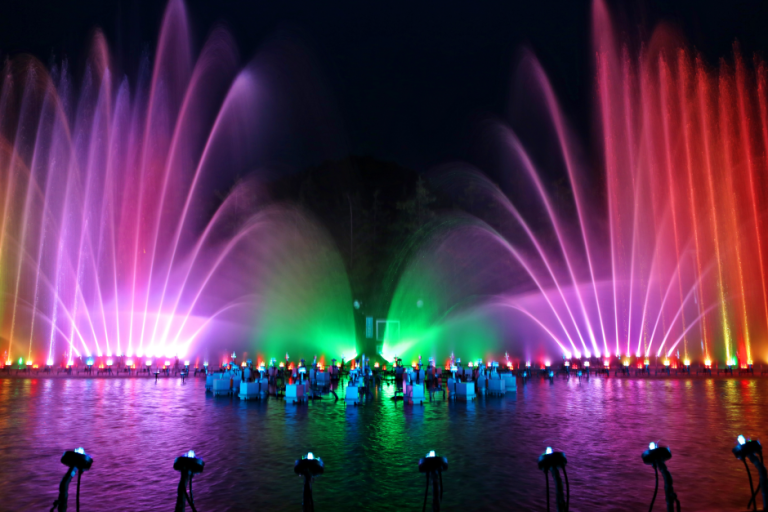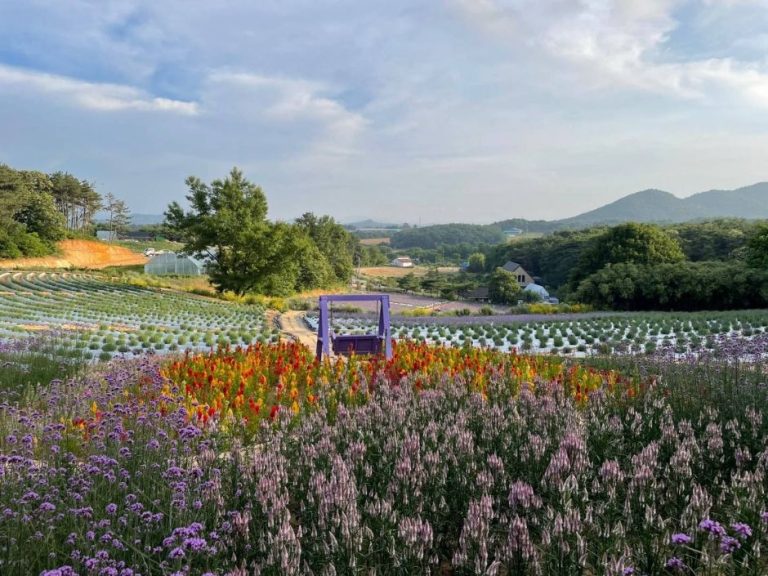Song Song Gong Jak So – Jeonju Branch [Tax Refund Shop] (송송공작소 전주점)
Song Song Gong Jak So – Jeonju Branch [Tax Refund Shop] (송송공작소 전주점)
–
– Address : 21, Eunhaeng-ro, Wansan-gu, Jeonju-si, Jeollabuk-do
※ Presentation Information
– Fair Day
Monday – Sunday
– Information and Guides
+82-10-6424-1028
– Opening Hours
9:00-21:00
– Parking
Not available
– Restroom
Available
– Items for Sale
Souvenir Shop
– Shop Guide
Refund method (Time-frame) : Claim for refund
◎ Nearby Tourism Infobox
⊙ Jeonju Nanjang (전주난장)
View detailed guide on Korea Trip Guide →

– Homepage
www.jjnanjang.com
Jeonju Nanjang is a theme park style museum with over 25 years of materials for an attraction within Jeonju Hanok Village perfect for photo shoot and experience programs. There are more than 70 theme zones as well as a water well that is over 110 years old. Visitors can enjoy the retro feel as they roam around a museum filled with history.
⊙ Jeonju Crafts Exhibition Hall (전주공예품전시관)
View detailed guide on Korea Trip Guide →

– Homepage
www.jeonjucraft.or.kr
– Tel
+82-63-281-1610
Jeonju Crafts Exhibition Hall promotes the beauty of traditional Korean crafts, and is made up of a Craft Hall, Special Exhibition Hall, and Experience Hall, Visitors can see traditional art works from master artisans as well as creative works from up-and-coming artists and designers. Visitors can also create their own handcrafted items in one of their many programs.
⊙ Inyeon Hanok (인연)

– Homepage
http://www.전주한옥숙박.kr
– Tel
+82-10-2911-9349
Inyeon is a hanok stay positioned near the public parking lot in Jeonju Hanok Village, Jeollabuk-do – a little away from the bustling main streets and so a quiet place to stop. (The name Inyeon means ‘a special relationship’.) As well as bathrooms and AC, all guestrooms have bare-beam ceilings, lacquered hanji flooring and traditional household items evoking old-time village life. In the yard stands a 200-year-old pomegranate tree and a table made of reclaimed wood where visitors can rest. Free traditional games such as Yutnori and Jegichagi are provided.
⊙ Dong Nak Won / 동락원

– Homepage
http://dongnakwon.com
– Tel
+82-63-287-9300, +82-10-4951-9300
Dongnagwon is a hanok hotel in Jeonju Hanok Village, Jeollabuk-do. It was built as a memorial hall for the missionary William Junkin, who founded a school mission in Jeonju in 1895. Now refurbished as a hotel and venue for traditional performances, wedding ceremonies and seminars, visitors will find old-style interiors with antique furniture and folding screens. Guests can play traditional games in the yard, and there is a red clay room to relieve the fatigue of travel, free of charge. Mountain bikes can be borrowed to ride around the Hanok Village or on the banks of the Jeonjucheon Stream.
⊙ Jeonju Hanok Village [Slow City] (전북 전주 한옥마을 [슬로시티])
View detailed guide on Korea Trip Guide →

– Homepage
hanok.jeonju.go.kr
– Tel
+82-63-282-1330
Jeonju Hanok Village comprises around 700 beautiful hanok buildings, and is Korea’s largest, and the only urban, traditional hanok village. The village started in the early 1900s around the areas of Gyeonggijeon Shrine, Omokdae, and Jeonjuhyanggyo Confusian Academy-all important cultural heritages. To experience what hanok is like, visitors can either book a hanok accommodation or visit the Hanok Life Experience Hall.
⊙ PoongNamheon (풍남헌)

– Homepage
http://poongnam.com
– Tel
+82-63-286-7673, +82-10-2757-7673
Pungnamheon is a hanok stay in a traditional nobleman’s house in Jeonju, Jeollabuk-do. Next to the house stands a 600-year-old ginkgo tree, the guardian spirit of Jeonju Hanok Village. Two unusual features of this hanok is that there is no wood-floored hall or daecheong, and the toenmaru wooden porch is extra wide, and has a window. The floors are finished with laquered hanji (Korean paper), and the roof tiles were made in Goryeong. Old folding screens and Korean paintings complete the atmosphere of a traditional yangbang house. Guests have a chance to taste wild green tea gathered and made by the owner.
⊙ GaEunChae (가은채)
– Homepage
http://www.gaeunchae.kr
– Tel
+82-63-284-7775, +82-10-6335-5267
Gaeunchae is a hanok stay in Jeonju Hanok Village, Jeollabuk-do, constructed of wood in the traditional way without using nails. The location is ideal for local sightseeing as it’s close to Jeonju Craft Masters Hall, the Traditional Wine Museum, Seunggwangjae (home of the last Joseon prince Yi Seok), and Dakjong Hanji Doll Workshop. The exceptionally scenic alleyways around Gaeunchae are part of a Village tour. In the yard visitors will see different types of stone used as paving or decoration: granite, mica, and other local stones, all hand-trimmed by our ancestors.
⊙ Dongnagwon House (동락원)
View detailed guide on Korea Trip Guide →

– Homepage
www.dongnakwon.com/ (English, Japanese, Chinese)
– Tel
+82-63-285-3490
The Dongnagwon House in Jeonju Hanok Village provides a getaway to experience hanok stay and traditional Korean life. Affiliated with Jeonju Kijeon College, Dongnagwon is also a memorial hall dedicated to W. M. Junkin, who came to Korea as a missionary from the South Presbyterian Church of the United States in 1892. Dongnagwon is a reproduction of the old hanok houses in Jeonju from the time when W. M. Junkin was doing his missionary work in the area. It is
comprised of three buildings: Anchae (main hall), Sarangchae (guest house), and Haengnangchae (servants’ quarters).
Visitors to Dongnagwon can learn and experience traditional Korean culture such as music, crafts, and dance while inhabiting traditional lodging. In addition to providing accommodation for individual guests, Dongnagwon is also used for group accommodations or activities such as seminars, conferences, and family events. For groups of 30 or more, it is possible to rent out the entire venue (in addition to all facilities, including Seungdokdang, Seunghwadang, Cheongyuje, and the front yard).
